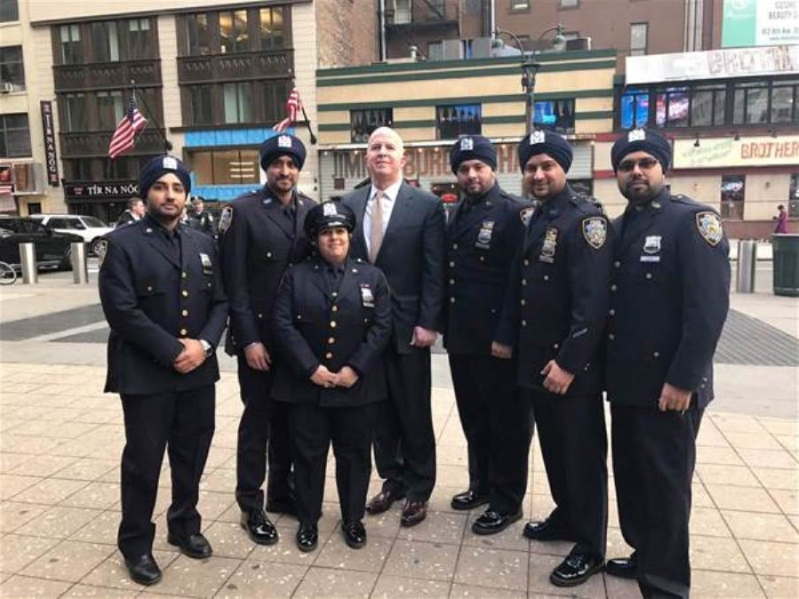
New York Police Department (NYPD) managers now allow police officers for religious reasons to wear turbans in place of traditional police caps, and to have beards up to an inch away from their faces.
Male-observant Sikhs often cover their heads with "sacred" turbans and refrain from shaving their beards, which is challenging for those who wanted to join police forces.
New York Police Commissioner James O'Neill announced the new rules on Wednesday, following a graduation ceremony for new police recruits, reports NBC. Police officers must first get approval, and the turbans must be navy blue and have the NYPD insignia attached.
O'Neill said approximately 160 Sikhs serve in the NYPD.
"This is a proud moment for Sikhs, not only here in the U.S., but all over the world," Gurvinder Singh, president of the Sikh Officers Association - a religious fraternal organization for Sikh NYPD officers, told NBC News. " Now they're able to serve in the greatest police department in the world, in possibly the most diverse city in the world ... This country that has given so much - we came here to find opportunity - now to be able to serve this city and give back, it's a great thing."
Singh said this rule change took six years to make happen, after a group of officers approached then NYPD Commissioner Bill Bratton about allowing turbans and beards, but they couldn't reach an agreement.
When the Sikh Officers Association formed last year, members decided to make this religious attire allowance a priority. When then NYPD Chief James O'Neill was appointed commissioner in September, they approached him about the policy, Singh said.
Officers who wish to wear a turban or beard must apply for an accommodation with NYPD's office of equal employment opportunity, which will decide on a case-by-case basis, said Singh. Because some observant Sikhs do not shave their beards, they will have to tie or gel them down to within one half-inch in length, he said.
"The NYPD's refusal to hire turbaned and bearded Sikhs allows other employers to justify refusing to hire Sikhs," Harsimran Kaur, legal director of The Sikh Coalition, told NBC News in a statement. "If the NYPD's new policy indeed allows for Sikhs to maintain unshorn beards and turbans, that sends a powerful message to the rest of America that Sikhs are an important part of our nation's fabric."
Prior to this policy change, Sikh officers had to fit their turbans under their departmental-issued police cap. Beards were forbidden because they interfere with wearing gas masks.
Last year, a Muslim-American officer sued the NYPD to stop enforcement of what he said was an unconstitutional policy banning officer from having beards. Masood Syed, a law clerk for NYPD's Deputy Commissioner of Trials, said in June that he was suspended for not shaving his beard -- which he wears as a Sunni Muslim. After a federal judge ordered the NYPD to continue to pay Syed, the police department reinstated the officer and agreed to review its no-beard policy. His case is still pending, according to NBC News.







